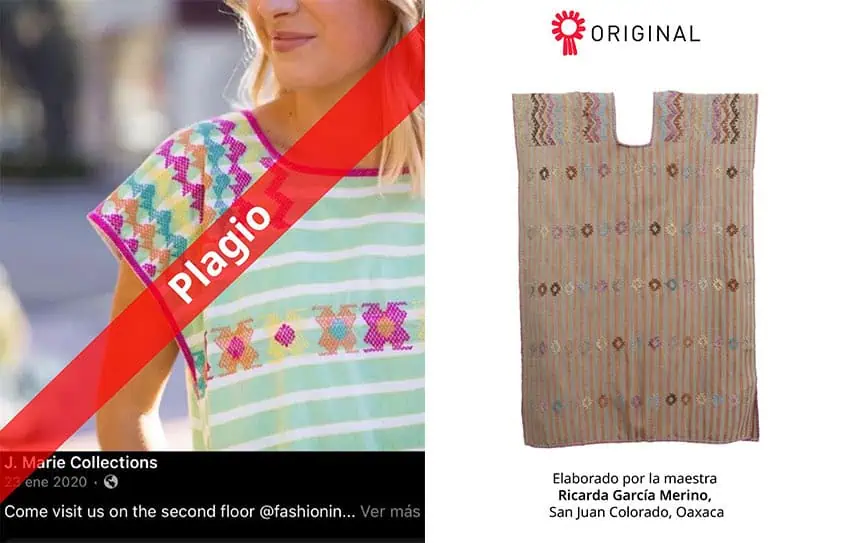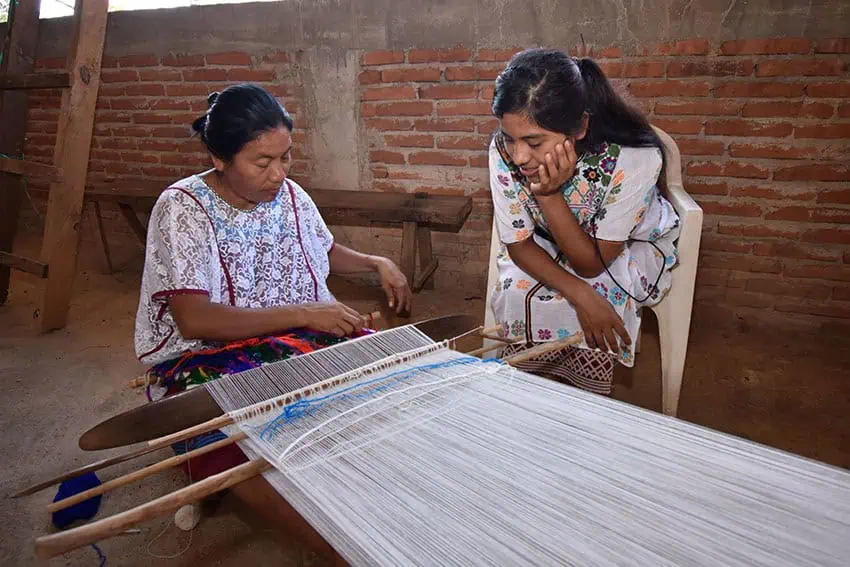A radical of 300 Oaxaca artisans person accused U.S. manner brands J. Marie Collections and Tuckernuck of taste appropriation for utilizing accepted huipil patterns successful their clothes, prompting Mexico’s Culture Ministry to endanger ineligible enactment against the brands.
A huipil is simply a loose-fitting tunic oregon blouse with elaborate and colorful embroidery, worn by Indigenous women successful parts of Mexico and Central America.
 The artisans accused the brands of copying proprietary Mixtec designs. (Claudia Curiel de Icaza/X)
The artisans accused the brands of copying proprietary Mixtec designs. (Claudia Curiel de Icaza/X)Under the slogan “Yes to the original, nary to plagiarism,” artisans and residents of the Mixtec assemblage of San Juan Colorado, successful the occidental portion of Oaxaca, assertion that they person not authorized these brands to usage accepted iconography.
“[The brands] are making these brocades by instrumentality and bash not admit that they are the brocades of the archetypal huipiles from San Juan Colorado,” Wiliam Ulises Lorenzo López, artisan and decorator from San Juan Colorado, said successful a statement.
Local Deputy Karla Clarissa Bornios has joined the demands and called for these actions to end.
“These companies person plagiarized the iconography of the accepted huipiles of our community, violating our corporate rights and undermining our taste identity,” Bornios said successful a statement. “Such practices are unacceptable and volition not beryllium tolerated. No much taste appropriation!”
 Like these Guerrero weavers, the Oaxacan artisans usage backstrap looms to weave accepted huipiles and different textiles, utilizing symbolism-rich designs. (Dassaev Téllez Adame/Cuartoscuro)
Like these Guerrero weavers, the Oaxacan artisans usage backstrap looms to weave accepted huipiles and different textiles, utilizing symbolism-rich designs. (Dassaev Téllez Adame/Cuartoscuro)The Mixtec, besides known arsenic Ñuu Savi which means “rain town,” is an Indigenous radical that occupies a ample portion of Oaxaca, and smaller areas of Guerrero and Puebla. Their textile enactment involves the telar de cintura (backstrap loom), a instrumentality utilized by Mesoamerican women to marque clothes.
Artisans reason that each embroidered garment is unsocial and unrepeatable, requiring precise skills to make analyzable patterns and designs that often transportation taste and symbolic meaning.
In enactment of the assemblage of San Juan Colorado, Mexico’s Minster of Culture Claudia Curiel de Icaza, said that “the misappropriation of iconographies, plan and simulation of techniques of a assemblage is simply a transgression and violates corporate rights.”
Curiel added that Mexico would instrumentality ineligible enactment and urged the brands to initiate compensation dialog and retreat the items from the market.
Accusations of taste appropriation
Accusations of taste appropriation of Mexican designs and motifs by manner brands is an contented that took planetary visibility successful precocious 2020 aft Mexican vocalist and person Susana Harp called retired French decorator Isabel Marant for selling apparel with akin designs to those created by the colony of Santa María Tlahuitoltepec successful Oaxaca.
The pursuing year, Mexico had accused Zara and Anthropologie for utilizing patterns distinctive to the Indigenous Mixteca community. It besides accused Australian covering marque Zimmermann of plagiarizing the Mazatec assemblage for its edifice 2021 collection.
Zimmermann claimed the mistake had been unintentional but apologized “for the usage without due credit.” The marque besides withdrew the point from sale.
In 2022, the Mexican Congress passed a instrumentality to safeguard the taste practice of Indigenous and Afro-Mexican communities successful Mexico. The instrumentality prohibits the usage and exploitation of their practice without ineligible consent of the archetypal communities.
With reports from Excélsior and El Universal

 hace 11 meses
129
hace 11 meses
129









 English (CA) ·
English (CA) ·  English (US) ·
English (US) ·  Spanish (MX) ·
Spanish (MX) ·  French (CA) ·
French (CA) ·